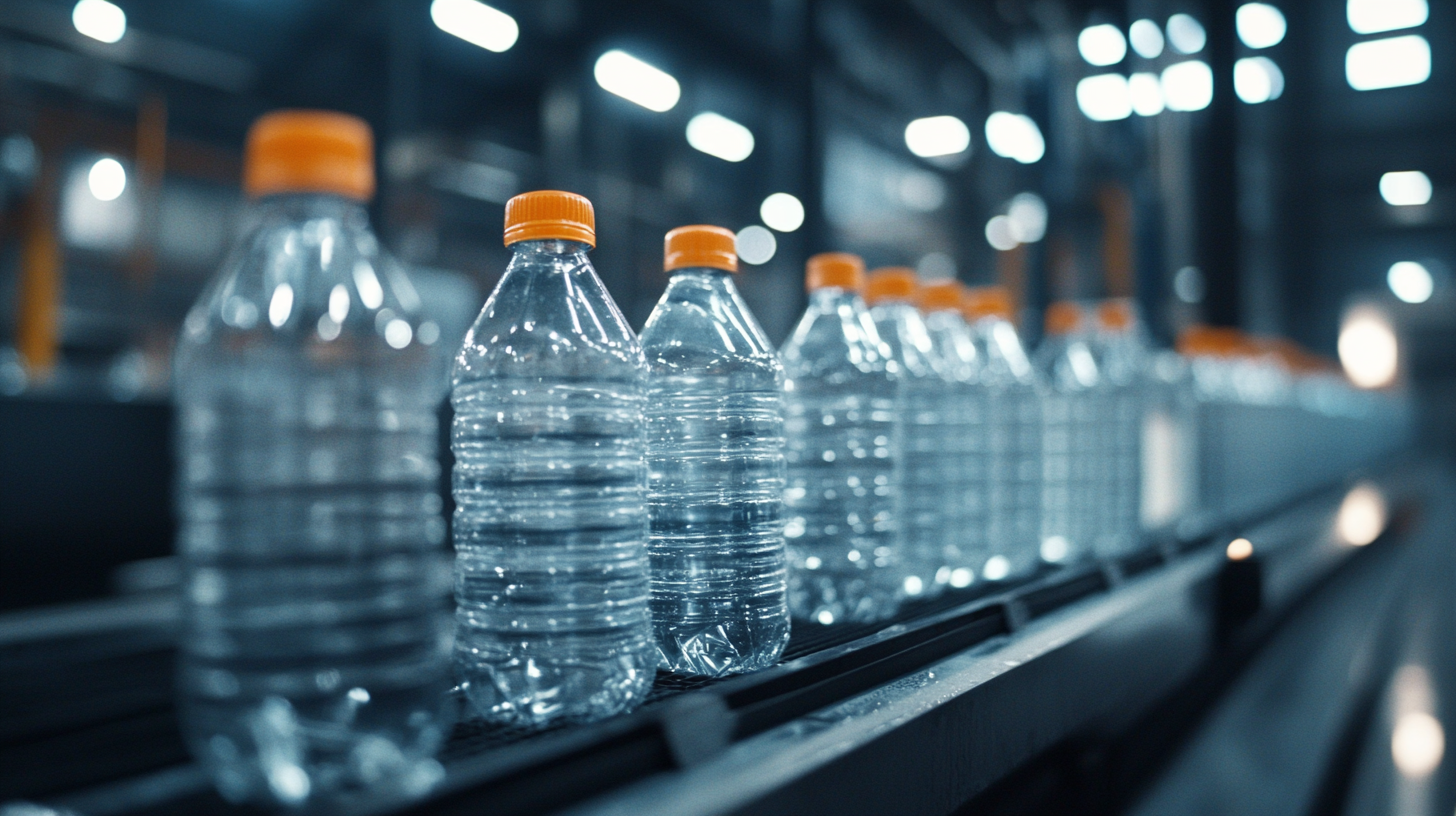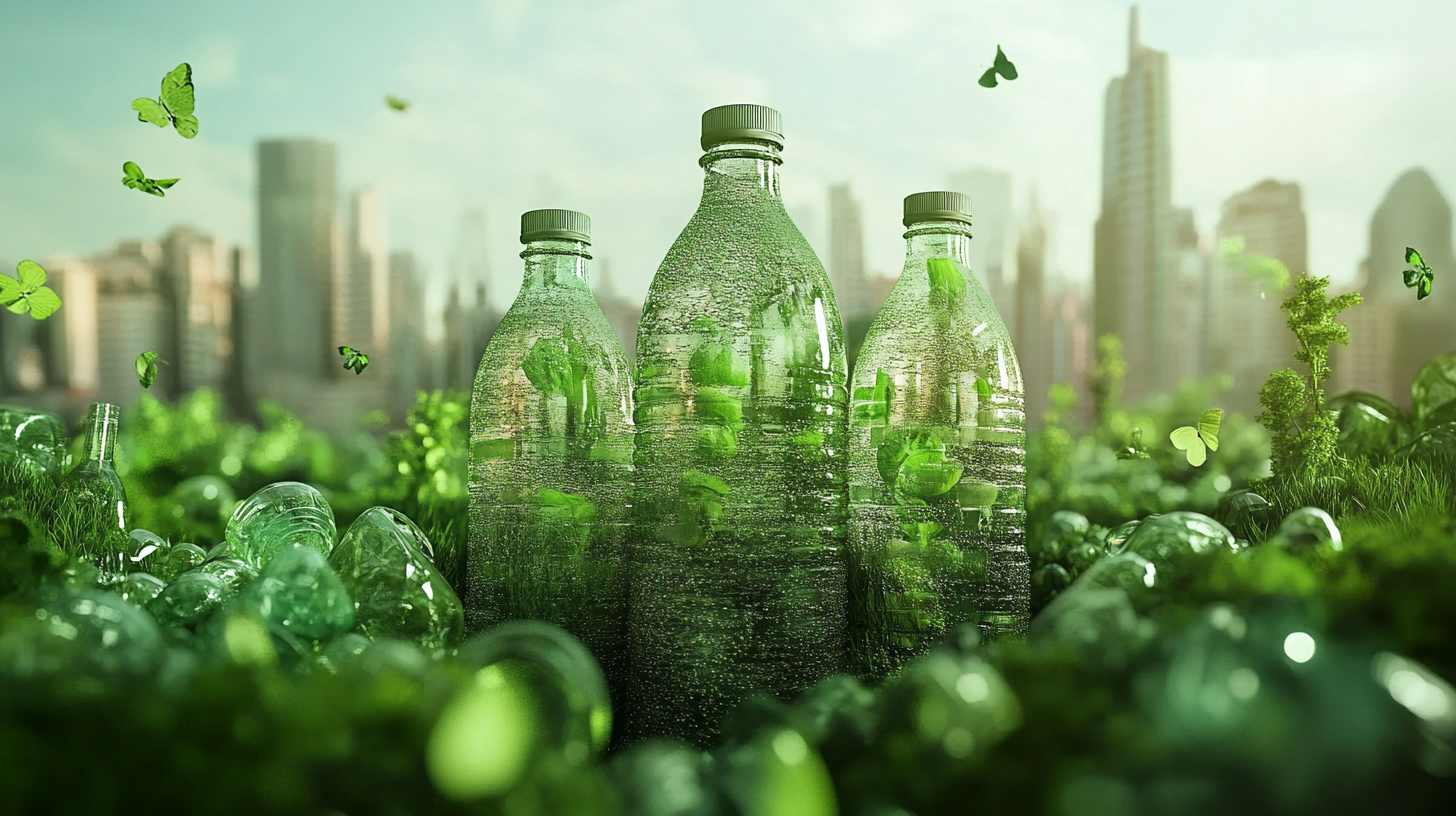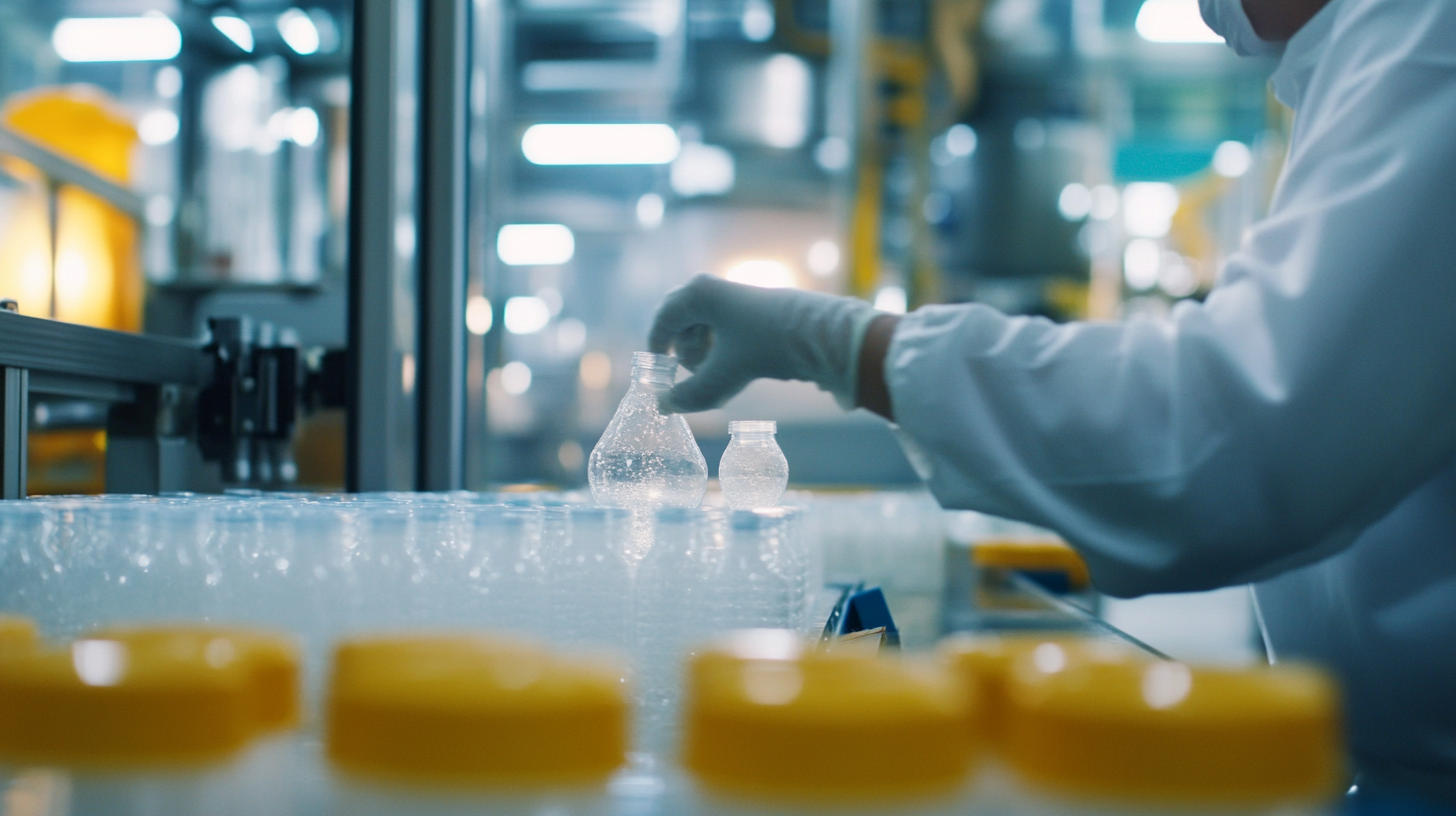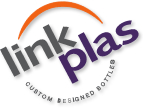Exploring the Global Landscape of Plastic Bottle Manufacturers and Their Impact on Sustainable Packaging Solutions
In recent years, the plastic bottle manufacturing industry has come under intense scrutiny due to its significant environmental impact. According to a report by the International Bottled Water Association (IBWA), the global bottled water market was valued at approximately $230 billion in 2020, with plastic packaging accounting for a substantial portion of this figure. As the demand for bottled beverages continues to rise, so does the responsibility of plastic bottle manufacturers to adopt sustainable practices. The challenges posed by plastic pollution are pressing, with an estimated 8 million tons of plastic entering the oceans each year, a statistic highlighted by the United Nations Environment Programme (UNEP).
As public awareness around sustainability grows, plastic bottle manufacturers are increasingly challenged to innovate and implement eco-friendly packaging solutions. A study by Grand View Research suggests that the global sustainable packaging market is projected to reach $500 billion by 2027, driven by consumer preferences for environmentally responsible products. This blog will delve into the current landscape of plastic bottle manufacturers, examining their approaches to sustainability, the technological advancements being made in eco-friendly materials, and the overall impact of these developments on the industry’s shift towards a more sustainable future.

Global Distribution of Plastic Bottle Manufacturers and Their Key Markets
The global landscape of plastic bottle manufacturers is an intricate web of production and consumption that significantly influences sustainable packaging solutions. As of 2023, the global plastic packaging market was valued at an impressive $431.28 billion and is projected to soar to $733.60 billion by 2032. This robust growth underscores the increasing demand for plastic packaging products, primarily driven by consumer preferences and rapid industrial expansion. The key markets for plastic bottle manufacturers are not only limited to beverages but also extend into sectors such as personal care, household products, and food.
Furthermore, the landscape is evolving as manufacturers are pressured to adopt more sustainable practices in response to environmental concerns. The reusable packaging market specifically is on an upward trajectory, estimated at $135.8 billion in 2024 and expected to grow at a compound annual growth rate (CAGR) of 5.9% from 2025 to 2030. This shift reflects a growing recognition of the environmental impact of single-use plastics and highlights an industry-wide initiative toward more sustainable solutions.
As manufacturers strategize their operations to meet these demands, understanding the geographic distribution of their facilities and key markets becomes crucial. Regions with high consumer demand, especially in North America and Asia-Pacific, are likely to see a concentration of plastic bottle production. This intricate ballet of supply, demand, and regulatory compliance will shape the future of sustainable packaging, making it paramount for manufacturers to innovate in their production methods and materials.
Exploring the Global Landscape of Plastic Bottle Manufacturers
This bar chart illustrates the distribution of plastic bottle manufacturers across key global markets, highlighting their impact on sustainable packaging solutions. The data showcases the number of manufacturers in different regions, shedding light on their response to sustainability trends.
Environmental Challenges Posed by Plastic Bottles: A Closer Look
The proliferation of plastic bottles has emerged as a significant environmental challenge in recent decades. Every year, millions of tons of plastic waste, primarily from single-use bottles, end up in landfills and oceans, posing a severe threat to wildlife and ecosystems. Not only do these plastic bottles take hundreds of years to decompose, but they also break down into microplastics, which infiltrate our food chain and drinking water, ultimately impacting human health.
To address these challenges, it's essential for manufacturers to embrace sustainable packaging solutions. Innovations such as biodegradable materials, refillable bottle systems, and improved recycling practices are crucial in mitigating the environmental impact of plastic waste. By investing in research and development, companies can transition from traditional plastic production to more sustainable alternatives, thus significantly reducing their carbon footprint and conserving natural resources.
Moreover, consumer awareness plays a vital role in driving change within the industry. As society becomes increasingly environmentally conscious, the demand for sustainable packaging options grows. Manufacturers are urged to respond by adopting eco-friendly practices and engaging in transparent communication with consumers about their sustainability efforts. Ultimately, collaboration between manufacturers, consumers, and policymakers is essential to tackle the environmental challenges posed by plastic bottles and foster a more sustainable future.
Innovative Sustainable Packaging Solutions in the Beverage Industry
In recent years, the beverage industry has witnessed a significant shift towards sustainable packaging solutions, driven by both consumer demand and environmental imperatives. As manufacturers seek to reduce their ecological footprint, innovative approaches are emerging in the design and production of plastic bottles. Companies are now exploring bio-based materials, lightweight designs, and recycling-friendly processes that not only decrease reliance on traditional plastics but also encourage responsible consumption.
One noteworthy trend is the use of plant-based plastics, which are derived from renewable resources such as corn or sugarcane. This shift not only reduces the carbon footprint associated with petroleum-based plastics but also offers a less harmful alternative that can break down more easily in natural environments. Furthermore, advancements in bottle design have focused on minimizing material usage while maintaining functionality, allowing manufacturers to produce lighter bottles that require less energy to transport.
Another crucial aspect of sustainable packaging is the emphasis on circular economy principles. Beverage brands are increasingly adopting refillable systems and robust recycling initiatives that facilitate the reuse of materials. By creating take-back programs and investing in closed-loop systems, these companies are not only optimizing resource use but also fostering a culture of sustainability among their consumers. As the beverage industry continues its innovation journey, sustainable packaging solutions will play a pivotal role in shaping a greener future.

Case Studies: Leading Companies Pioneering Eco-Friendly Practices
As the world increasingly prioritizes sustainability in packaging, several leading companies have taken the initiative to pioneer eco-friendly practices in the plastic bottle manufacturing sector. For instance, Coca-Cola has committed to using 50% recycled content in its PET plastic bottles by 2030, aiming to reduce plastic waste and promote a circular economy. A 2021 report from the Ellen MacArthur Foundation revealed that only 14% of plastic packaging is recycled globally, highlighting the urgent need for drastic improvements in recycling rates and sustainable practices.
Another exemplary case is Unilever, which has set a target to make all of its plastic packaging recyclable, reusable, or compostable by 2025. Their innovative approach includes experimenting with alternative materials such as plant-based plastics. According to the 2022 Global Plastic Packaging Market Report, the demand for sustainable packaging solutions has surged by 36% in the last three years, driven by increased consumer awareness and regulatory pressures.
Nestlé is also making strides in this domain, having announced a commitment to achieve 100% recyclable or reusable packaging by 2025. Their partnership with TerraCycle to launch a refillable packaging pilot program reflects a transformative shift in their business model towards more sustainable choices. The emergence of such initiatives underscores the significant role that these companies play in addressing the plastic crisis while showing leadership in sustainable packaging innovations.
Impact of Major Plastic Bottle Manufacturers on Sustainable Packaging Solutions
Future Trends: The Role of Technology in Reducing Plastic Waste
The global landscape of plastic bottle manufacturers is evolving rapidly, driven by a growing awareness of environmental issues and technological advancements. As sustainability becomes a priority for consumers and companies alike, manufacturers are increasingly adopting innovative technologies to reduce plastic waste and enhance recycling processes. From bioplastics to advanced recycling systems, the role of technology in creating sustainable packaging solutions is more vital than ever.
One promising trend in the industry is the development of biodegradable and compostable materials that can replace traditional plastics. Companies are investing in research to produce bottles from renewable resources, which not only reduces the carbon footprint but also minimizes reliance on fossil fuels. Additionally, technological innovations in material science have led to the creation of lightweight bottles that require less plastic without compromising durability. This shift not only conserves resources but also decreases the energy needed for transportation.
Moreover, advancements in recycling technologies are playing a crucial role in closing the loop of plastic production. Enhanced sorting methods and chemical recycling processes enable the recovery of materials that were previously considered unrecyclable. Manufacturers are beginning to design bottles with recyclability in mind, featuring clear labeling and innovative designs that facilitate easier disassembly. As these technologies mature, we can expect a significant reduction in plastic waste and a move towards a circular economy that prioritizes sustainability in packaging solutions.

CONTACT US
|
